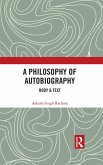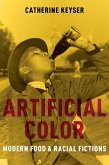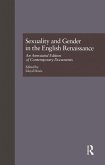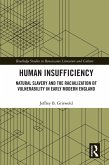Carlos Hiraldo
Segregated Miscegenation (eBook, ePUB)
On the Treatment of Racial Hybridity in the North American and Latin American Literary Traditions
50,95 €
50,95 €
inkl. MwSt.
Sofort per Download lieferbar

25 °P sammeln
50,95 €
Als Download kaufen

50,95 €
inkl. MwSt.
Sofort per Download lieferbar

25 °P sammeln
Jetzt verschenken
Alle Infos zum eBook verschenken
50,95 €
inkl. MwSt.
Sofort per Download lieferbar
Alle Infos zum eBook verschenken

25 °P sammeln
Carlos Hiraldo
Segregated Miscegenation (eBook, ePUB)
On the Treatment of Racial Hybridity in the North American and Latin American Literary Traditions
- Format: ePub
- Merkliste
- Auf die Merkliste
- Bewerten Bewerten
- Teilen
- Produkt teilen
- Produkterinnerung
- Produkterinnerung

Bitte loggen Sie sich zunächst in Ihr Kundenkonto ein oder registrieren Sie sich bei
bücher.de, um das eBook-Abo tolino select nutzen zu können.
Hier können Sie sich einloggen
Hier können Sie sich einloggen
Sie sind bereits eingeloggt. Klicken Sie auf 2. tolino select Abo, um fortzufahren.

Bitte loggen Sie sich zunächst in Ihr Kundenkonto ein oder registrieren Sie sich bei bücher.de, um das eBook-Abo tolino select nutzen zu können.
First Published in 2003. Routledge is an imprint of Taylor & Francis, an informa company.
- Geräte: eReader
- mit Kopierschutz
- eBook Hilfe
- Größe: 0.74MB
Andere Kunden interessierten sich auch für
![Segregated Miscegenation (eBook, PDF) Segregated Miscegenation (eBook, PDF)]() Carlos HiraldoSegregated Miscegenation (eBook, PDF)52,95 €
Carlos HiraldoSegregated Miscegenation (eBook, PDF)52,95 €![A Philosophy of Autobiography (eBook, ePUB) A Philosophy of Autobiography (eBook, ePUB)]() Aakash Singh RathoreA Philosophy of Autobiography (eBook, ePUB)43,95 €
Aakash Singh RathoreA Philosophy of Autobiography (eBook, ePUB)43,95 €![The Subject of Race in American Science Fiction (eBook, ePUB) The Subject of Race in American Science Fiction (eBook, ePUB)]() Sharon DegrawThe Subject of Race in American Science Fiction (eBook, ePUB)0,00 €
Sharon DegrawThe Subject of Race in American Science Fiction (eBook, ePUB)0,00 €![Artificial Color (eBook, ePUB) Artificial Color (eBook, ePUB)]() Catherine KeyserArtificial Color (eBook, ePUB)13,95 €
Catherine KeyserArtificial Color (eBook, ePUB)13,95 €![Sexuality and Gender in the English Renaissance (eBook, ePUB) Sexuality and Gender in the English Renaissance (eBook, ePUB)]() Sexuality and Gender in the English Renaissance (eBook, ePUB)25,95 €
Sexuality and Gender in the English Renaissance (eBook, ePUB)25,95 €![Erotic Medievalisms (eBook, ePUB) Erotic Medievalisms (eBook, ePUB)]() Elan Justice PavlinichErotic Medievalisms (eBook, ePUB)40,95 €
Elan Justice PavlinichErotic Medievalisms (eBook, ePUB)40,95 €![Human Insufficiency (eBook, ePUB) Human Insufficiency (eBook, ePUB)]() Jeffrey B. GriswoldHuman Insufficiency (eBook, ePUB)40,95 €
Jeffrey B. GriswoldHuman Insufficiency (eBook, ePUB)40,95 €-
-
-
First Published in 2003. Routledge is an imprint of Taylor & Francis, an informa company.
Hinweis: Dieser Artikel kann nur an eine deutsche Lieferadresse ausgeliefert werden.
Dieser Download kann aus rechtlichen Gründen nur mit Rechnungsadresse in A, B, BG, CY, CZ, D, DK, EW, E, FIN, F, GR, HR, H, IRL, I, LT, L, LR, M, NL, PL, P, R, S, SLO, SK ausgeliefert werden.
Hinweis: Dieser Artikel kann nur an eine deutsche Lieferadresse ausgeliefert werden.
Produktdetails
- Produktdetails
- Verlag: Taylor & Francis eBooks
- Seitenzahl: 144
- Erscheinungstermin: 4. Februar 2014
- Englisch
- ISBN-13: 9781135383510
- Artikelnr.: 40445249
- Verlag: Taylor & Francis eBooks
- Seitenzahl: 144
- Erscheinungstermin: 4. Februar 2014
- Englisch
- ISBN-13: 9781135383510
- Artikelnr.: 40445249
- Herstellerkennzeichnung Die Herstellerinformationen sind derzeit nicht verfügbar.
Carlos Hiraldo earned his Ph.D. from SUNY at Stony Brook and is currently an Assistant Professor of English at LaGuardia Community College.
Introduction: Coloring Latinos, Coloring the United States The Novel as
Popular Culture; Race in Latin America; Latinos as a U.S. Race; The Novel
in the Dissemination and Reconfiguration of Notions about Race Chapter One:
Novel Concepts: The Role of the Novel in Developing Ideas of Nation and
Race in the Americas Mikhail Bakhtin and Georg Lukács, and the New World of
the Novel; Benedict Anderson and the Novel as a Tool of National
Imagination; Fredric Jameson and the Many Worlds in the Americas; Novels
and the Fictionalization of Racial Attitudes Chapter Two: Enslaved
Characters: Nineteenth-Century Abolitionist Novels and the Absence of
Bi-racial Consciousness Differences between Bi-racial and Mulatto
Characters; The Myth of Racial Purity versus the Dreams of a Miscegenated
Paradise; The Limitations of Nineteenth-Century Racial Representations;
Uncle Tom's Cabin and Bi-racial Characters in Nineteenth-Century U.S.
Literature; sab as a Nineteenth-Century Cuban Romantic Tale about Race; The
Complicit Ignorance of Cecilia Valdes; A Thin Line between Black and White
in Martin Morua Delgado's sofía and Mark Twain's Pudd'nhead Wilson; Race
without Romance in Antonio Zambrana's El negro Francisco Chapter Three:
Mulatto Fictions: Representations of Identity-Consciousness in U.S. and
Latin American Bi-racial Characters Mulatto Characters as Racial and
Cultural Nexus; passing the Tragic Mulatta in Twentieth-Century U.S.
Literature; gabriela and the Sexualized Mulatta in Twentieth-Century Latin
American Literature; Pobre Negro, The Violent Land and the Limits of
Mulatto Characters in Twentieth-Century Latin American Literature; Joe
Christmas and the Unmerry Existence of Mulatto Characters in
Twentieth-Century U.S. Literature; Go Down, Moses and the Mumbled
Recognition of Racial Confluence in the United States; The Bluest Eye and
the Persistence of Anti-Mulatto Fiction in the United States Chapter Four:
Identity Against the Grain: Latino Authors of African-European Heritage and
Their Encounters with the Racial Ideology of the United States Latino
Authors and the One Drop Rule; Piri Thomas, Julia Alvarez, and the
Limitations of Choosing Sides in the U.S. Racial Divide; Esmeralda Santiago
and Negi's Persistent Puertoricanness in the Face of the One Drop Rule
Chapter Five: Choosing Your Own Face: Future Trend of Racial Discourses
Latino Influence in Other Cultural Products; The Latin American Racial
Ethic behind the Wigga; The Rock, Tiger Woods, and a Universal Race Notes
Bibliography Index
Popular Culture; Race in Latin America; Latinos as a U.S. Race; The Novel
in the Dissemination and Reconfiguration of Notions about Race Chapter One:
Novel Concepts: The Role of the Novel in Developing Ideas of Nation and
Race in the Americas Mikhail Bakhtin and Georg Lukács, and the New World of
the Novel; Benedict Anderson and the Novel as a Tool of National
Imagination; Fredric Jameson and the Many Worlds in the Americas; Novels
and the Fictionalization of Racial Attitudes Chapter Two: Enslaved
Characters: Nineteenth-Century Abolitionist Novels and the Absence of
Bi-racial Consciousness Differences between Bi-racial and Mulatto
Characters; The Myth of Racial Purity versus the Dreams of a Miscegenated
Paradise; The Limitations of Nineteenth-Century Racial Representations;
Uncle Tom's Cabin and Bi-racial Characters in Nineteenth-Century U.S.
Literature; sab as a Nineteenth-Century Cuban Romantic Tale about Race; The
Complicit Ignorance of Cecilia Valdes; A Thin Line between Black and White
in Martin Morua Delgado's sofía and Mark Twain's Pudd'nhead Wilson; Race
without Romance in Antonio Zambrana's El negro Francisco Chapter Three:
Mulatto Fictions: Representations of Identity-Consciousness in U.S. and
Latin American Bi-racial Characters Mulatto Characters as Racial and
Cultural Nexus; passing the Tragic Mulatta in Twentieth-Century U.S.
Literature; gabriela and the Sexualized Mulatta in Twentieth-Century Latin
American Literature; Pobre Negro, The Violent Land and the Limits of
Mulatto Characters in Twentieth-Century Latin American Literature; Joe
Christmas and the Unmerry Existence of Mulatto Characters in
Twentieth-Century U.S. Literature; Go Down, Moses and the Mumbled
Recognition of Racial Confluence in the United States; The Bluest Eye and
the Persistence of Anti-Mulatto Fiction in the United States Chapter Four:
Identity Against the Grain: Latino Authors of African-European Heritage and
Their Encounters with the Racial Ideology of the United States Latino
Authors and the One Drop Rule; Piri Thomas, Julia Alvarez, and the
Limitations of Choosing Sides in the U.S. Racial Divide; Esmeralda Santiago
and Negi's Persistent Puertoricanness in the Face of the One Drop Rule
Chapter Five: Choosing Your Own Face: Future Trend of Racial Discourses
Latino Influence in Other Cultural Products; The Latin American Racial
Ethic behind the Wigga; The Rock, Tiger Woods, and a Universal Race Notes
Bibliography Index
Introduction: Coloring Latinos, Coloring the United States The Novel as
Popular Culture; Race in Latin America; Latinos as a U.S. Race; The Novel
in the Dissemination and Reconfiguration of Notions about Race Chapter One:
Novel Concepts: The Role of the Novel in Developing Ideas of Nation and
Race in the Americas Mikhail Bakhtin and Georg Lukács, and the New World of
the Novel; Benedict Anderson and the Novel as a Tool of National
Imagination; Fredric Jameson and the Many Worlds in the Americas; Novels
and the Fictionalization of Racial Attitudes Chapter Two: Enslaved
Characters: Nineteenth-Century Abolitionist Novels and the Absence of
Bi-racial Consciousness Differences between Bi-racial and Mulatto
Characters; The Myth of Racial Purity versus the Dreams of a Miscegenated
Paradise; The Limitations of Nineteenth-Century Racial Representations;
Uncle Tom's Cabin and Bi-racial Characters in Nineteenth-Century U.S.
Literature; sab as a Nineteenth-Century Cuban Romantic Tale about Race; The
Complicit Ignorance of Cecilia Valdes; A Thin Line between Black and White
in Martin Morua Delgado's sofía and Mark Twain's Pudd'nhead Wilson; Race
without Romance in Antonio Zambrana's El negro Francisco Chapter Three:
Mulatto Fictions: Representations of Identity-Consciousness in U.S. and
Latin American Bi-racial Characters Mulatto Characters as Racial and
Cultural Nexus; passing the Tragic Mulatta in Twentieth-Century U.S.
Literature; gabriela and the Sexualized Mulatta in Twentieth-Century Latin
American Literature; Pobre Negro, The Violent Land and the Limits of
Mulatto Characters in Twentieth-Century Latin American Literature; Joe
Christmas and the Unmerry Existence of Mulatto Characters in
Twentieth-Century U.S. Literature; Go Down, Moses and the Mumbled
Recognition of Racial Confluence in the United States; The Bluest Eye and
the Persistence of Anti-Mulatto Fiction in the United States Chapter Four:
Identity Against the Grain: Latino Authors of African-European Heritage and
Their Encounters with the Racial Ideology of the United States Latino
Authors and the One Drop Rule; Piri Thomas, Julia Alvarez, and the
Limitations of Choosing Sides in the U.S. Racial Divide; Esmeralda Santiago
and Negi's Persistent Puertoricanness in the Face of the One Drop Rule
Chapter Five: Choosing Your Own Face: Future Trend of Racial Discourses
Latino Influence in Other Cultural Products; The Latin American Racial
Ethic behind the Wigga; The Rock, Tiger Woods, and a Universal Race Notes
Bibliography Index
Popular Culture; Race in Latin America; Latinos as a U.S. Race; The Novel
in the Dissemination and Reconfiguration of Notions about Race Chapter One:
Novel Concepts: The Role of the Novel in Developing Ideas of Nation and
Race in the Americas Mikhail Bakhtin and Georg Lukács, and the New World of
the Novel; Benedict Anderson and the Novel as a Tool of National
Imagination; Fredric Jameson and the Many Worlds in the Americas; Novels
and the Fictionalization of Racial Attitudes Chapter Two: Enslaved
Characters: Nineteenth-Century Abolitionist Novels and the Absence of
Bi-racial Consciousness Differences between Bi-racial and Mulatto
Characters; The Myth of Racial Purity versus the Dreams of a Miscegenated
Paradise; The Limitations of Nineteenth-Century Racial Representations;
Uncle Tom's Cabin and Bi-racial Characters in Nineteenth-Century U.S.
Literature; sab as a Nineteenth-Century Cuban Romantic Tale about Race; The
Complicit Ignorance of Cecilia Valdes; A Thin Line between Black and White
in Martin Morua Delgado's sofía and Mark Twain's Pudd'nhead Wilson; Race
without Romance in Antonio Zambrana's El negro Francisco Chapter Three:
Mulatto Fictions: Representations of Identity-Consciousness in U.S. and
Latin American Bi-racial Characters Mulatto Characters as Racial and
Cultural Nexus; passing the Tragic Mulatta in Twentieth-Century U.S.
Literature; gabriela and the Sexualized Mulatta in Twentieth-Century Latin
American Literature; Pobre Negro, The Violent Land and the Limits of
Mulatto Characters in Twentieth-Century Latin American Literature; Joe
Christmas and the Unmerry Existence of Mulatto Characters in
Twentieth-Century U.S. Literature; Go Down, Moses and the Mumbled
Recognition of Racial Confluence in the United States; The Bluest Eye and
the Persistence of Anti-Mulatto Fiction in the United States Chapter Four:
Identity Against the Grain: Latino Authors of African-European Heritage and
Their Encounters with the Racial Ideology of the United States Latino
Authors and the One Drop Rule; Piri Thomas, Julia Alvarez, and the
Limitations of Choosing Sides in the U.S. Racial Divide; Esmeralda Santiago
and Negi's Persistent Puertoricanness in the Face of the One Drop Rule
Chapter Five: Choosing Your Own Face: Future Trend of Racial Discourses
Latino Influence in Other Cultural Products; The Latin American Racial
Ethic behind the Wigga; The Rock, Tiger Woods, and a Universal Race Notes
Bibliography Index







